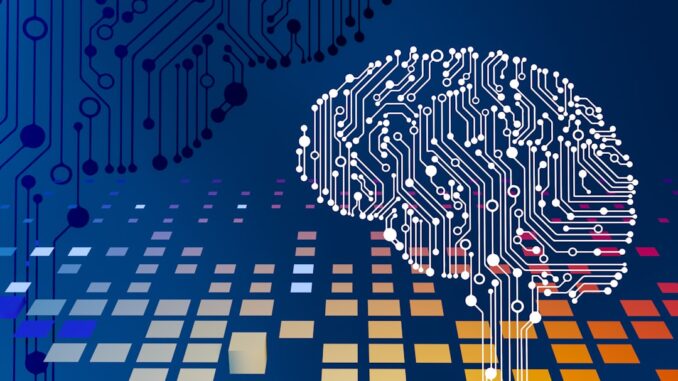
Summary
AI is revolutionizing schizophrenia diagnosis through innovative applications of machine learning, impacting early detection, treatment, and patient care. From analyzing brain scans and speech patterns to processing electronic health records, AI offers new tools for understanding and managing this complex disorder. These advancements hold promise for improved patient outcomes and a more efficient healthcare system, while also demanding careful consideration of ethical implications and responsible implementation.
Main Story
Schizophrenia, a tough mental illness affecting millions globally, really throws a wrench into diagnosis and treatment. You see, traditional methods lean heavily on subjective symptom assessments, which often leads to delays in getting a diagnosis and starting treatment. But here’s where artificial intelligence (AI), especially machine learning, comes in. It offers a potentially game-changing way to understand and deal with schizophrenia. By sifting through complex data, AI algorithms can spot subtle patterns and predict outcomes with impressive accuracy, potentially revolutionizing how we approach schizophrenia care.
Early Detection and Diagnosis: A New Frontier
One of the most exciting applications of AI is early detection and diagnosis. Researchers are building sophisticated machine learning models that analyze brain scans, like fMRI, to pinpoint neural signatures that suggest a risk of schizophrenia. These tools can predict the likelihood of someone developing schizophrenia – for instance, in high-risk individuals who have a family history of the illness. And they’re doing it with pretty impressive accuracy, often outperforming traditional methods.
Plus, AI-powered speech recognition systems can pick up on subtle linguistic features that are associated with psychosis. Which, of course, offers another way to identify the illness early. These advancements could really shorten the time it takes to get a diagnosis, which means we can intervene sooner and potentially change the course of the illness. And you know, it’s not just about the tech; it’s about giving people a better chance at a fulfilling life.
Refining Diagnostics with Patient Records and Biomarkers
It’s not just brain scans and speech patterns; AI algorithms can also dig into routine clinical data from electronic health records (EHRs) to predict how schizophrenia will progress. By processing tons of patient information, AI models can find people at high risk of developing the disorder, sometimes even before obvious symptoms show up. This means clinicians can focus their attention and efforts more effectively, leading to earlier diagnosis and treatment.
AI is also helping us find new biomarkers for schizophrenia, like specific ERP abnormalities. Machine learning algorithms can analyze ERP data with super high precision, spotting subtle changes in brain activity that might happen before clinical symptoms appear. For example, my cousin’s working on a project that uses AI to analyze EEG data and, well he’s mentioned how cool it is to see it identify patterns that human eyes would miss. These AI-driven biomarker discoveries open up new possibilities for early detection and prevention.
Transforming Treatment and Patient Care
But it’s not just about diagnosis; AI is also influencing treatment strategies and patient care. For instance, AI algorithms can analyze patient data to predict how they’ll respond to certain treatments. This allows for personalized treatment plans that are tailored to each person’s needs. So, as a result we can potentially improve treatment outcomes and minimize side effects. Also, AI-powered tools can support patients and their caregivers in dealing with the challenges of schizophrenia.
Virtual assistants and chatbots can provide 24/7 support, track symptoms, and encourage patients to stick to their medication schedules. This can improve patient engagement and overall well-being. And I mean, who wouldn’t want a little extra support when dealing with a complex condition like schizophrenia? Furthermore, AI can also take over some administrative tasks, which frees up clinicians to focus on patient care, making the whole healthcare experience feel more human.
Navigating the Ethical Landscape and Future Directions
As AI becomes more and more involved in schizophrenia care, we have to address the ethical considerations. It’s crucial to protect patient privacy and data security, minimize any algorithmic biases, and promote the responsible use of AI. On the other hand, ongoing research is focused on making AI models better, expanding datasets to improve their accuracy, and integrating different data sources like genetic information and neuroimaging.
Looking ahead, AI has the potential to transform the lives of people affected by schizophrenia – promising earlier and more accurate diagnoses, personalized treatments, and better patient outcomes. But only, if we navigate the ethical landscape responsibly. So, let’s keep pushing the boundaries of what’s possible, while always keeping the well-being of patients at the heart of everything we do.


The potential for AI-driven biomarkers, like subtle ERP changes, to improve early detection is fascinating. Could this approach be expanded to identify risk factors for other mental health conditions, leading to broader preventative strategies?
That’s a great question! Expanding the AI-driven biomarker approach to other mental health conditions could be revolutionary. Imagine using similar techniques to identify early risk factors for depression or anxiety. Preventative strategies could then be tailored to individuals before symptoms become severe. The possibilities for proactive mental healthcare are truly exciting!
Editor: MedTechNews.Uk
Thank you to our Sponsor Esdebe
AI spotting ERP changes missed by the human eye? My cousin in Podiatry could use that tech to diagnose my dodgy feet! Seriously though, if AI can refine diagnostics to that level, imagine the possibilities for early intervention across the board.